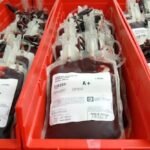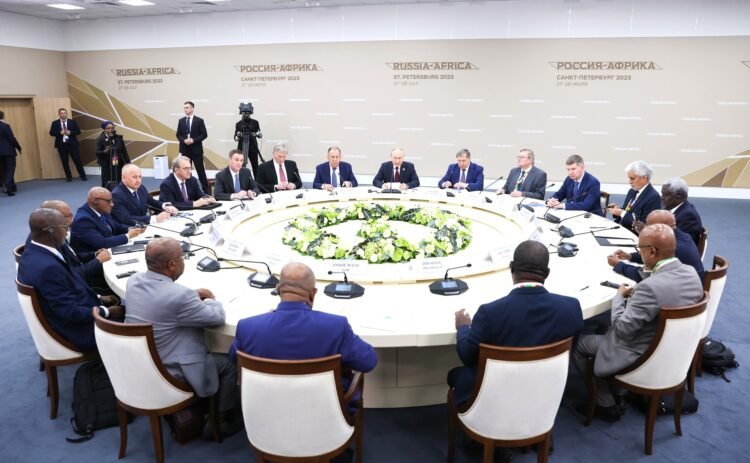Standing in the gap: Journalists as advocates for women, girls’ safety
By Justina Auta, News Agency of Nigeria (NAN)
Favour, a 12-year-old primary five student, solemnly observed as mourners streamed into their home to offer condolences to her father for the loss of her 28-year-old mother, Rebeccah.
Amidst the sorrow, Favour’s thoughts drifted to the haunting memories of violence and abuse in the hands of her father that ultimately claimed her mother’s life, leaving behind a void too deep to fathom.
Rebeccah’s story is tragically familiar, reflecting the harsh reality faced by many women whose lives were cut short by domestic violence and abuse.
The UN defines GBV as any act that results in physical, sexual, or mental harm, violence against women remains a pervasive global issue.
According to WHO statistics, nearly one-third of women aged 15-49 have experienced physical and/or sexual violence by an intimate partner.
In Nigeria, the Federal Ministry of Women Affairs reveals alarming figures, with over 27,000 recorded cases of Sexual and Gender-Based Violence (SGBV) recorded between 2020 and 2023 in select states and the FCT alone.
Addressing this crisis requires a multi-faceted approach involving various stakeholders, including the media.
Recognising their pivotal role, the Nigeria Association of Women Journalists (NAWOJ) , a women-oriented pressure group among Nigerian journalists, has taken proactive steps to empower journalists as advocates for ending GBV.
Through capacity-building workshops like the Women Voice and Leadership (WVL) Project, funded by Action Aid Nigeria, NAWOJ aims to equip journalists with the tools and knowledge to effectively report on gender issues.
Mrs Chizoba Ogbeche, Vice-President, Zone D, NAWOJ, emphasised the importance of gender-sensitive reporting, urging journalists to highlight not only the challenges but also the resilience and achievements of women.
She said amplifying women’s issues in the media space would promote empowerment, crucial as Nigeria aims to address social, economic, and political challenges while striving for sustainable development.
Echoing this sentiment, Mr. Osaretim Osasebamwen, FCT Council Chairman of the Nigeria Union of Journalists (NUJ), emphasised the need to recognise and celebrate the invaluable contributions of women to society.
He stressed the importance of inclusive reporting that amplifies women’s voices and experiences.
In a call to action, Mr Chris Isiguzo, NUJ president, urged journalists to move beyond mere lamentations and embrace solutions-based journalism.
He emphasised the importance of highlighting not just the problems but also the pathways to change.
As journalists engage in critical dialogue and introspection, they have the power to challenge unconscious biases and shape a more inclusive media landscape“, he said.
Mrs. Bassey Ita-Ikpang, FCT Chairperson, NAWOJ, said women’s voices have often been marginalised or overlooked in mainstream media coverage.
“To address this imbalance and foster more inclusive and representative reporting, journalists must work actively to amplify women’s voices in their reporting”, she said.
On his part, Malam Ali Muhammad-Ali, Managing Director, News Agency of Nigeria (NAN), is of the opinion that the media space should focus more on reporting the consequences of perpetrating GBV.
Ali, like so many other gender right advocates, believes that punishing perpetrators of violence or harmful traditional practices would serve as a deterrent to others who might have the tendency to do the same.
“The media should stop celebrating or promoting GBV, if they must, they should report it from the perspective of punishment and justice not celebrating GBV.
“If the media keep objectifying women from advertising to marketing, that will encourage GBV.
“We should begin to highlight in the media space the consequences of perpetrating GBV, it will serve as a deterrent to others from committing such acts’’, he said.
Mrs Pauline Tallen, former Minister of Women Affairs during a sensitisation and capacity building for journalist as part of the 16 days of activism to end GBV advocated the speedy prosecution of GBV cases.
“I call on our law enforcement agencies and the judiciary to be more responsive in their prosecutions, ruling and passing judgement on perpetrators of GBV.
“We need stiffer penalties against sexual offenders, indeed at our last Council on Women Affairs meeting, members agreed on castration or death penalty without option of fine for perpetrators of rape.
“I urge the media to report issues affecting women, children, the vulnerable and persons living with disabilities’’, she said.
Similarly, in a bid to end GBV, the then governor of Kaduna state, Nasir El’rufai signed into law the amended penal code 2020, which prescribes surgical castration for a rapist upon conviction.
Dr Adaora Jack, the Executive Director, Gender Strategy Advancement International (GSAI) a Non-Governmental Organisation, urged media organisations to prioritise women empowerment to promote gender inclusivity.
She said the need to ensure gender accountability prompted the Gender for Agenda project with support from MacArthur Foundation and Wole Soyinka Center for Investigative Journalism.
“Nigeria, like many other countries, has been grappling with gender disparities, limiting the full potential and contributions of its female population.
“By empowering women, the country stands to benefit from a more diverse and inclusive workforce, increased economic growth, improved societal well-being, and enhanced political representation,” she said.
Stakeholders, contend that media, as vanguard for societal change have also and are still playing their parts in more awareness about gender based violence.
It is important that media professionals should go beyond reporting, but rather seek solutions to challenges affecting women and girls.
Gender activists say by advocating gender rights, safety and ensuring that all important issues are highlighted in the media towards bringing about the desired change, media professionals would be going beyond mere news reporting to the realm of concrete solution providers. (NANFeatures)
**If used please credit the writer and News Agency of Nigeria.










